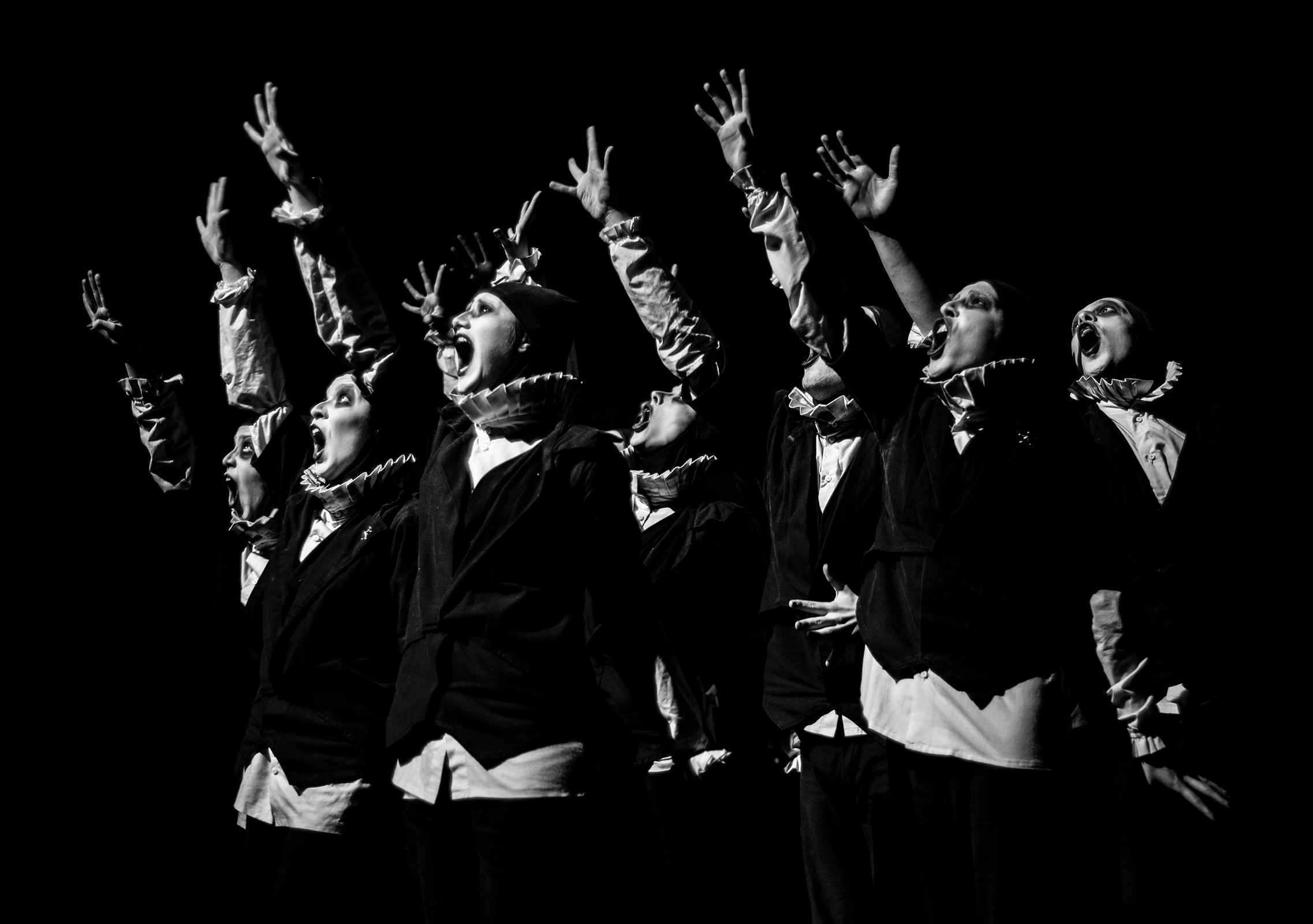Have you ever wondered how our actors memorize the 400-year-old words of the Bard?
Shakespeare’s lyric poetry can be difficult to master. It requires you to take a very hands-on approach to memorization. Alison Matthews, Bard’s Head Voice & Text Coach, has spent the past 10 years developing techniques to help actors commit Shakespeare lines to memory. We’ve persuaded her to share a few insider secrets on how to make the text your own.
On the topic of Shakespeare text, a young theatre professional recently said, “I know you’d geek out with me.” I like that “geeking out” is a compliment these days — a sign of kinship.
Unfamiliar words placed in unexpected order are tough to memorize by rote. But the value of Shakespeare’s text is not as words on a page but in how the words are expressed by actors for a live audience in a theatre. At Bard, we like to explore and experiment with different approaches to learning, remembering, and fully embodying Shakespeare’s text. Communicating these words engages the mind, body, imagination and heart — actors have to be firing on all cylinders when they perform on our stages.
Over the past decade, Bard’s Director of Education Mary Hartman and I have been offering voice & text intensives for the actors in our company. We’ve rolled across the floor speaking only the vowel sounds in the words; we’ve created “living metaphors” by physicalizing literary devices in the text; we’ve watched Schoolhouse Rock videos to analyze grammar and sentence structure; we’ve “walked the thoughts” by speaking the text aloud while walking across the room, to feel how the thoughts change. We constantly search for an active, experiential understanding that our actors can use to realize their characters.

A few things we’ve learned about memorizing Shakespeare:
Check the Meaning
Do take the time to look up unfamiliar words in dictionaries, lexicons, or other academic sources; Mary Hartman and I certainly “geek out” over that stuff! On stage, as in real life, it’s easier to remember and use words when we know what they mean.
Find the Patterns
While the phrasing may seem unusual sometimes, we can find patterns and shapes in the verse. As in music, patterns serve as memory aids. I sing “A, B, C, D…” to remember the order of the letters in the alphabet. The rhythm and the tune help me remember what comes next. Also, Shakespeare is filled with wonderful metaphors and descriptions. Look for themes. *Hint: he often describes things in financial/accounting terms, sexual imagery, or themes of nature.
Get Physical
Get up from the desk and move as you speak the text. There’s an energy to these words that has to move through the body to be known and remembered. In rehearsal, when trying to work out a bit or a section, actors reference their movements: “I cross downstage on that line…”. The words are woven through their physical relationship to the space, as well as their characters’ goals. There’s something deeply physical, corporeal, about learning Shakespeare.
At Bard on the Beach, I’m always struck by a sense of exhilaration when the actors and their text come together in the space. There’s the visual element (images created through words), an aural element (the sounds as we speak the words), and a kinesthetic experience (the way it feels to express these images, sounds, thoughts & feelings). Shakespeare is a profoundly ‘alive’ experience – physically, mentally, imaginatively. And it’s so rewarding to geek out with him!

